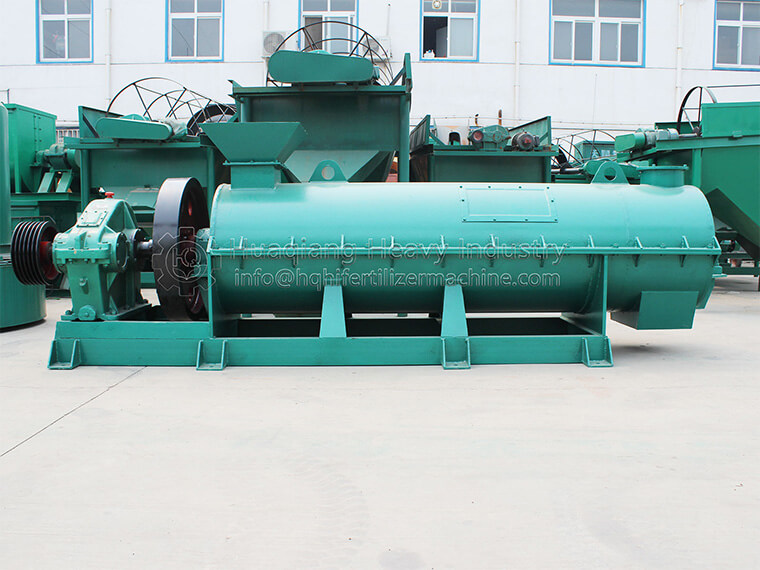The organic fertilizer granulator uses the mechanical stirring force of high-speed rotation and the resulting aerodynamic force to make the fine powder continuously realize the mixing, granulation, spheroidization, densification and other processes in the machine, so as to achieve the purpose of granulation.
Technological characteristics of organic fertilizer granulator
Compared with the disk granulator, the granulator has the advantages of high yield, uniform, smooth, high strength and low moisture, and the temperature after forming is about 45 ℃.
After being crushed, the fermented raw materials are mixed with a mixer, so that the water content of the materials is 35% – 40%. After entering the organic fertilizer granulator, the spherical particles can be processed, which are large in water content, large in particle size, small in water content, and small in particle size, which are in direct proportion. It makes use of the characteristics of the organic fertilizer raw materials inlaid and increased with each other under the action, and the particles produced are round, smooth, high in strength, and can also be added Necessary additives, adhesives, etc. 
The organic fertilizer machine is composed of motor, transmission, rotor, cylinder and frame
1. High quality motor is adopted, which has the characteristics of strong power, energy saving, reliable quality and overload operation.
2. The internal part of the reducer is made of special materials and processed by special process. It has the characteristics of high bearing capacity, stable operation, durable parts, safe and reliable operation, etc.
3. The rotor is divided into three parts: ① shaft ② teeth ③ stirrer head. The shaft is divided into three sections: ① mixing section ② granulating section ③ polishing section. The main shaft is made of special materials. The stirrer is made of special material, hard and wear-resistant, and can be adjusted in length. The stirrer head is made of alloy steel cutter head.
4. The cylinder is divided into three parts: feed mixing section, granulation section and polishing section.